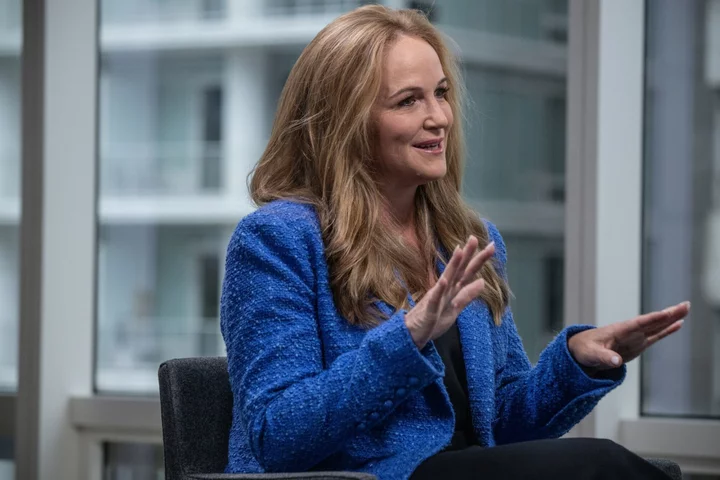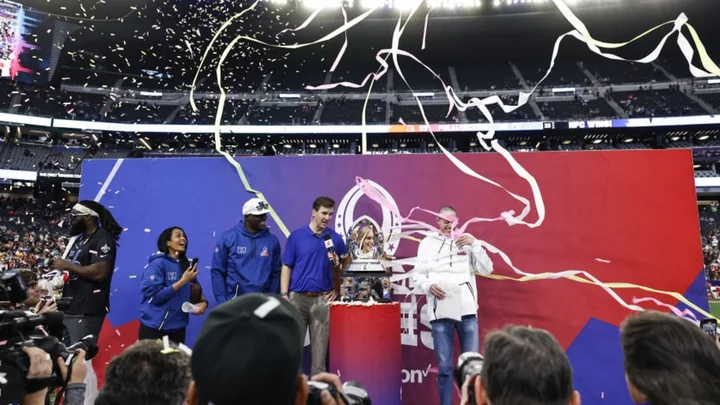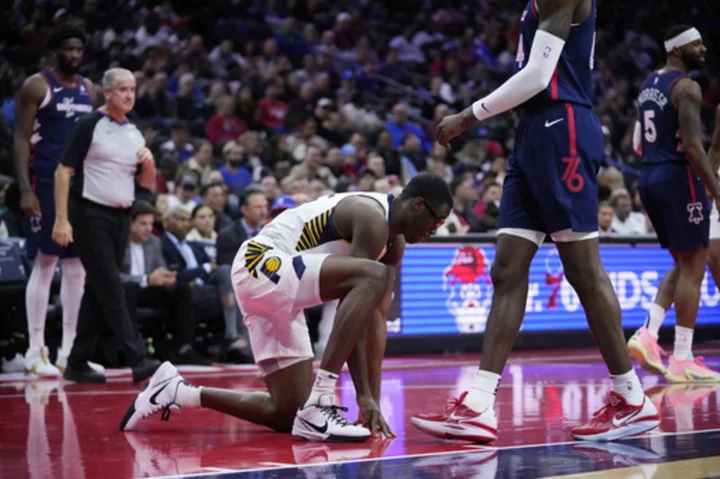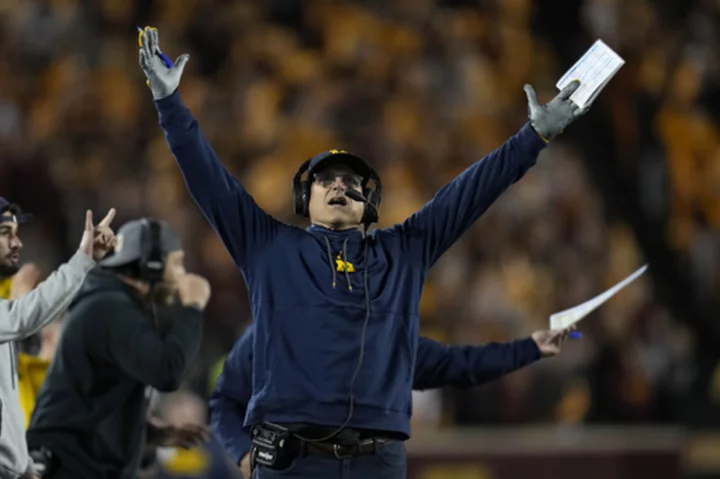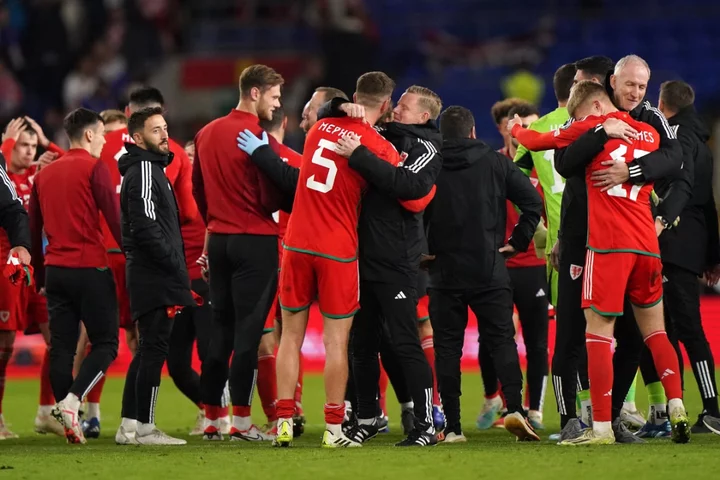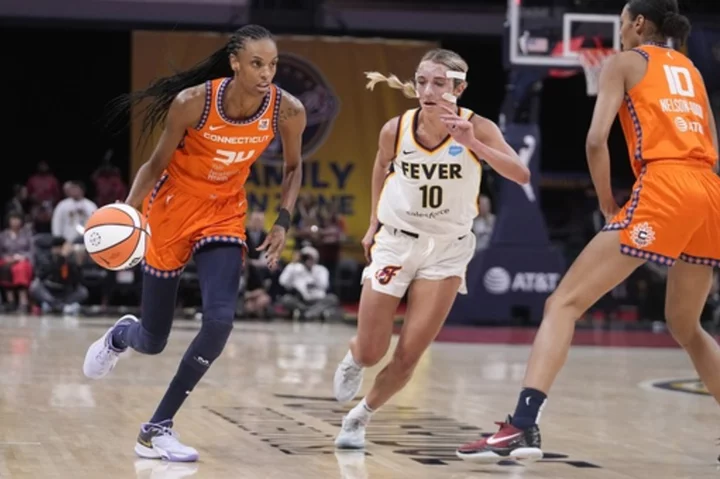In her first year atop the California Public Employees’ Retirement System as chief investment officer, Nicole Musicco gathered dozens of staff and laid out an ambitious vision for the largest US public pension fund.
She desired innovation, she told the audience at its Sacramento headquarters. She wanted “stadium deals” and identified professional sports as a frontier for more investing.
During her tenure the fund explored buying a stake in its hometown basketball team, the Sacramento Kings, said people familiar with the matter. Calpers also invited Tony Ressler, the billionaire Ares Management co-founder who owns the Atlanta Hawks, to speak to its board.
But Musicco’s plans for transforming the $463 billion pension fund — informed by her background at pioneering Canadian public pensions and an investment shop known for sports deals — would never come to pass. On Friday, the 49-year-old resigned after just 18 months, the latest in a string of abrupt exits from the role in recent years. Calpers said she was leaving “to attend to the immediate needs of family” in Canada.
“I care deeply about the work we do and about serving those who serve California, but right now my family needs me back in Toronto,” Musicco said in an emotional speech at a Calpers board meeting on Monday. “As difficult and awkward and far from ideal that is for all of us, this is what I need to do.”
The abrupt exit has created yet another leadership vacuum at an institution that is notoriously tough to manage, shining a light on the high wire that Calpers CIOs walk. They answer to an often-quarrelsome 13-member board – some of them elected and prone to airing differences in public – while navigating the sometimes-conflicting viewpoints of politicians and career staffers over how to provide for the retirement of the state’s public workers.
Musicco’s attempt to import the so-called Canadian investment model, which emphasizes direct investments to reduce the fees paid to outside managers, didn’t sit well with key investing staff at Calpers, because there was no clear path communicated on how to do it, according to people close to the pension who were not authorized to speak publicly.
Some were also irked by Musicco’s focus on sports, technology and venture capital investments, saying she hadn’t clearly outlined how Calpers would pull off such deals, and specifically, how such a massive institution could successfully deploy money at scale and move the needle on returns. It didn’t help that she was frequently absent from the office as she commuted from her family’s home in Toronto, said people familiar with the matter.
At the board meeting, Musicco defended her approach.
“There will always be a small minority that fights change,” she said. “But the vast majority of this team embraced change from the start and our mission to create the kind of culture that Calpers truly needs in order to be best-in-class and deliver its promise to its members.”
Calpers spokesperson John Myers said Musicco was hired with the full backing of the pension board and staff leadership. Such fault-finding represents a small number of people lodging “water-cooler criticisms,” he said.
“Musicco’s efforts have been embraced by a wide array of professionals on her team, and many have reached out to offer their support and compassion during this difficult time,” Myers said. “Large organizations thrive by embracing change.”
Read More: Calpers CIO Musicco to Step Down After Less Than Two Years (3)
The pension posted a preliminary return of 5.8% for the year through June. That means it ranked below 80% of its peers for the two fiscal years that wrapped up during her tenure.
After cycling through a series of leaders, strategy shifts and a retreat from private equity in the decade after the financial crisis, the pension system’s portfolio is only 72% funded. Its next CIO will not only face intense pressure to restore the institution’s credibility and clout, but the cold math of hitting a 6.8% return target.
Falling short could potentially force municipalities across the state to make up the difference by increasing payments and digging into their budgets, potentially cutting city services. The pension fund serves more than 2 million people, including police and firefighters.
‘Rich White Men’
Musicco was the second woman to lead Calpers’ investment operations. When the fund enlisted her, it hoped the seasoned private equity investor would boost returns by taking a page from Canadian pension plans that often bypass outside buyout giants and their fees by directly acquiring stakes in companies and seeking other alternative assets.
Musicco spent more than 16 years at the Ontario Teachers’ Pension Plan and a year at the Investment Management Corporation of Ontario before joining RedBird Capital Partners, a private equity firm known for its investments in Italian football team AC Milan and the TV network of the New York Yankees.
Yet grafting her version of the Canadian model onto Calpers proved challenging. In the US, public pension plans usually operate under constrained budgets and salaries. In Canada, there’s less scrutiny and they can lure buyout professionals more easily.
Musicco’s attempt to transform Calpers into a bolder dealmaker meant an adjustment for the roughly 400 employees in her investment shop.
She told subordinates they needed to build a “best-in-class investment office” and was laying the groundwork to hire more staff.
At the town hall, she described a meeting with National Football League Commissioner Roger Goodell. She said she told him the league was running out of “old, rich white men” as a source of money and should deal with Calpers, according to a person’s recollection of the event. Calpers declined to comment on internal staff meetings, and a spokesperson for the NFL didn’t respond to a message seeking comment.
Musicco swiftly set to work seeking bold bets.
Calpers explored a deal with the National Basketball Association’s Sacramento Kings, with owner Vivek Ranadivé visiting the pension fund’s office as part of the conversations, people familiar with the matter said. The talks, which haven’t previously been reported, didn’t lead to a deal. Calpers declined to comment, and representatives for Ranadivé didn’t respond to requests for comment.
‘Toys for Billionaires’
Private equity firms have emerged as major financiers of professional sports teams, but given the additional risks, it remains an unusual investment strategy for pension funds responsible for the retirement nest eggs of millions of people.
Sports teams are “toys for billionaires” and a poor fit for a public pension fund, said Matt Cole, who left Calpers in 2022 after 16 years and now heads Strive Asset Management, the firm co-founded by Vivek Ramaswamy.
“They’re an underfunded pension and they keep doing the same thing; there’s desire for change,” Cole said. But if you allocate money to a team, “you’re hoping there’s a billionaire down the line that will give you a good exit,” he said. “It was one of the most baffling strategies that I’ve heard.”
Advocates for Musicco say she was attempting to right a pension portfolio that has long been among the country’s worst performers.
“When you’ve got 22-year veterans in these positions, who have consistently underperformed and under delivered and they get the carpet pulled out and moved around, there’s going to be pushback,” said Terry Brennand, director of revenue, budgets, and pensions at SEIU, California’s largest union, which closely monitors Calpers’ policies.
Calpers also pushed to invest $1 billion with investment firms TPG Inc. and GCM Grosvenor to back up-and-coming buyout firms. Some investment staffers thought this did the opposite of what Musicco was preaching in terms of trying to cut out the middlemen, a person familiar with the matter said.
Calpers did make some headway in doing private equity deals in ways that reduced fees during Musicco’s tenure. Its staff completed $3.9 billion in private equity co-investments, continuing their previous efforts. The pension fund also made a $300 million commitment to the venture capital firm Thrive Capital to help Calpers scale its venture-focused investments.
And Musicco was also building off momentum by staff to do more financing plays. Before she joined, Calpers was in the final stretch of sealing a $750 million commitment to Ressler’s Ares to finance sports, media and entertainment businesses.
Still, as Musicco wrapped up her first year on the job, some longtime employees expressed unease to each other about the decisions of the newly arrived boss, who frequently crisscrossed the continent.
Her constant travel not only put a strain on Musicco, according to a person close to her, but also on senior staff, who had been eager for a clearer blueprint on how the fund would meet its investment goals after an 18-month leadership gap. Her predecessor, Ben Meng, resigned in August 2020 amid a review into whether his personal investments violated the pension fund’s rules. No evidence of wrongdoing has surfaced, and he disclosed the holdings. Meng declined to comment.
Courtside Seats
A flashpoint for some staff disgruntled with Musicco was a photo that began circulating around the Calpers office and appeared on the blog Naked Capitalism. The picture showed Musicco and her son at the National Basketball Association playoff on April 15 between the Golden State Warriors and the Sacramento Kings.
She was pictured next to Joe Lacob, the owner of the Golden State Warriors. Lacob did not respond to a request for comment. Myers said Musicco wasn’t acquainted with him before the game.
She also sat in the vicinity of Ranadivé, the owner of the team Calpers explored investing in, two people familiar with the matter said.
Some staff said the scene showing the guardian of civil servants’ retirement savings sitting in pricey courtside seats, near a potential investing counterparty, risked blurring personal and professional lines.
She paid for her own season tickets, Calpers said.
“Like many people, she has a personal love of sports,” Myers said. “She and her son embraced their new home team.”
Keith Brainard, research director at the National Association of State Retirement Administrators, likened the job of public-pension investing to working in a “fishbowl” because of the high degree of transparency required for everything from meetings to employee compensation.
“The level of knowledge and talent and expertise becomes elevated and the expectations and visibility and the pressure also increases,” he said in an interview.
Musicco attributed her decision to leave to the broader challenge of juggling work and home life.
“I’ve spent my entire career making the necessary trade-offs between my personal and professional life,” she said in a statement Friday. “But lately, those trade-offs have come at too high of a cost.”
--With assistance from Amanda Albright.
(Updates with Musicco comments starting in fifth paragraph.)

